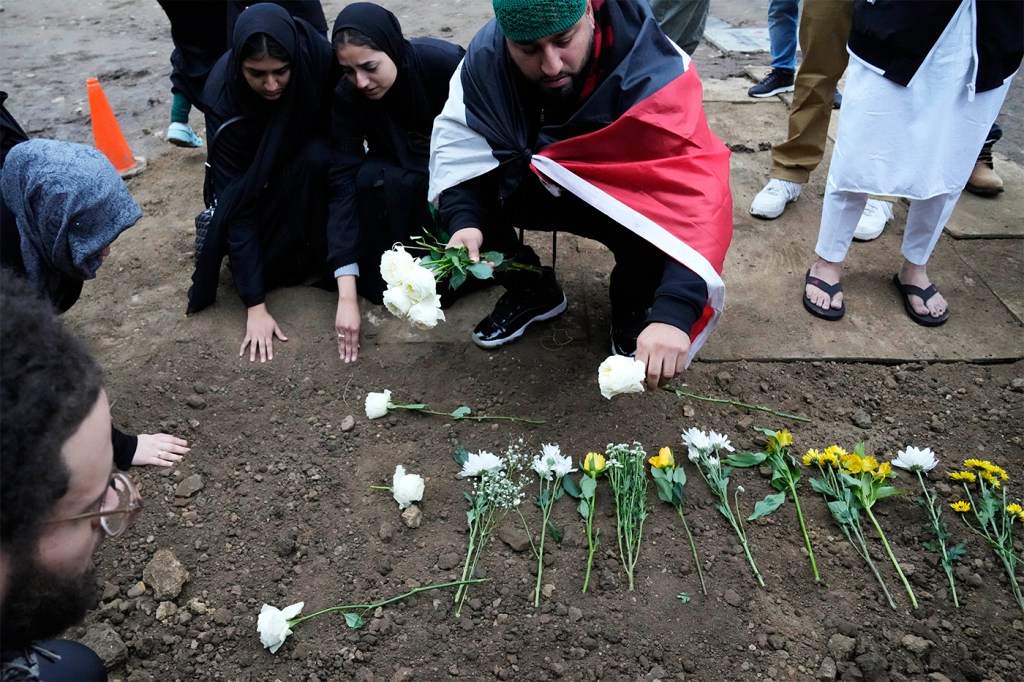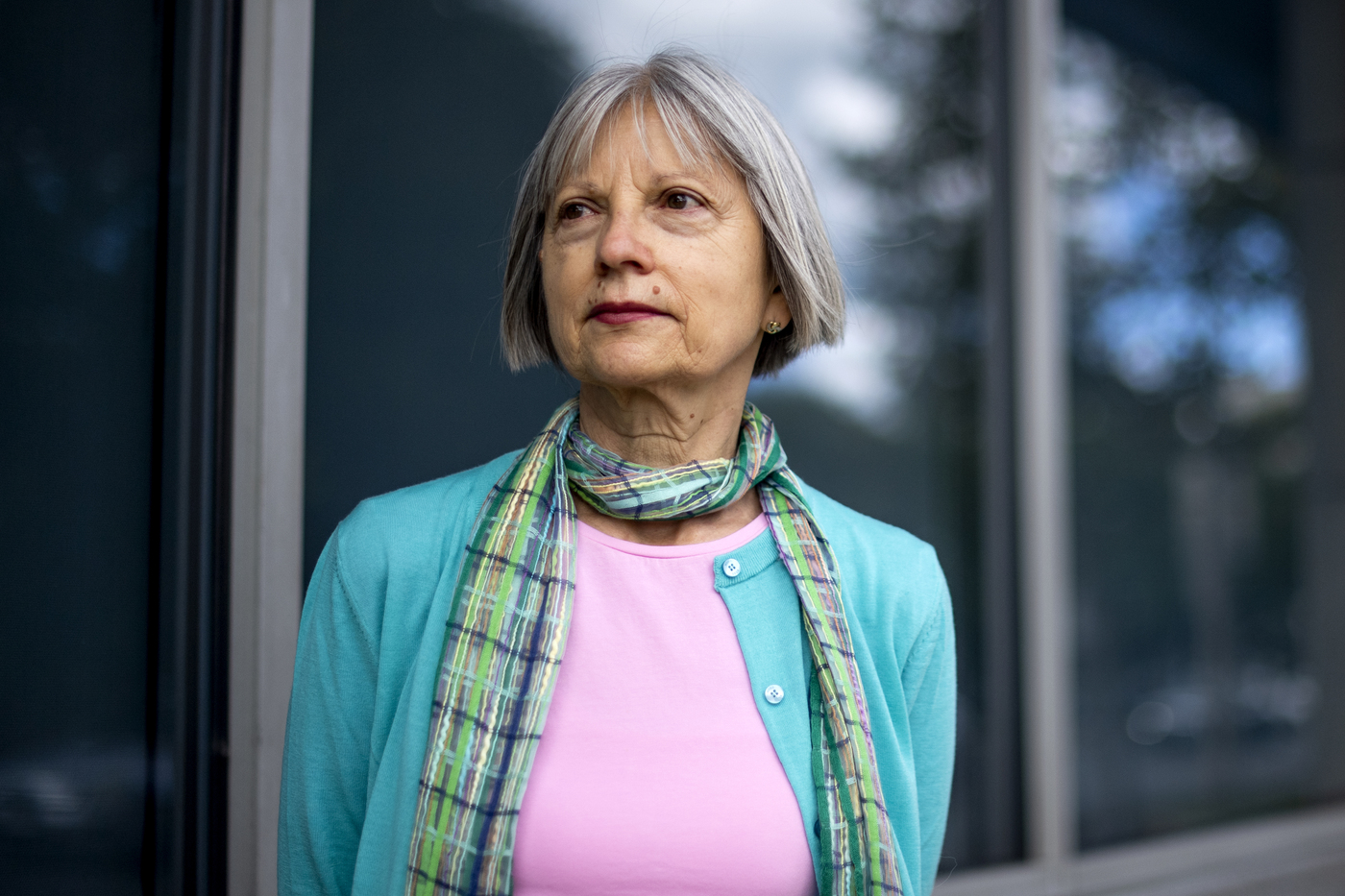Polarization to blame for spike in hate crimes on Muslims and Jews in US as Israel-Hamas war rages, expert says

This report is part of ongoing coverage of the Israel-Hamas war. Visit our dedicated page for more on this topic.
While the Israel-Hamas war is raging on one side of the world, hate crimes against Jews, Muslims and Arabs are increasing in other parts of the globe.
Ethnic tensions spilling over and prompting retaliation against entire groups of people is not an uncommon reaction to hostilities — even if they’re happening thousands of miles away, says Gordana Rabrenovic, assistant professor of sociology and director of the Brudnick Center on Violence and Conflict at Northeastern University.
In the United States, polarization is one of the foremost reasons for the violence, says Rabrenovic, who has been studying such conflicts for years and wrote a book, “Why We Hate,” with colleague, professor Jack Levin, in the aftermath of the Sept. 11, 2001, terrorist attacks. The book examines whether hatred is an innate human characteristic or learned behavior.
“When we have such a tense situation, there is an increase in hate crimes against those communities,” she says. “The people from these groups are becoming victims themselves. It doesn’t matter that they’re not in Israel or [Gaza].”

In a nation divided, people often tend to get information from different sources that frame their thinking, Rabrenovic says. It’s easy for people to get their news only from sources with a bias that confirms their “side” of things.
“We have conflicting narratives about what’s going on depending on which side you’re talking to,” she says. “It will influence the sentiments that people might have and certainly feel like you can turn against people. … We humans have difficulty with uncertainty and these kinds of categories make it more certain. It’s easier to believe that you know who is good and who is bad.”
On top of that, people tend to generalize and oversimplify. For example, they might see someone who they assume is Muslim and hold them responsible for the acts of every single person in the Muslim community.
Hate crimes and ethnic/religious tensions also occur from only viewing someone based on one part of their identity and not focusing on what you have in common.
“This is what makes hate so dangerous to our society,” Rabrenovic says. “It’s not against an individual. It’s against whoever is perceived to be a member of that group. So, we kind of have this collective responsibility that if somebody from your group committed some act of violence, the whole group is responsible for it. … We are very pluralistic people and in this type of conflict, your ethnicity becomes a marker of difference.”
The problem is this then leads to collective punishment, Rabrenovic adds. This can come in the form of hate crimes against individuals such as the kind that have been on the rise in the U.S.
The U.S. Department of Homeland Security says hate crimes against Muslims, Arabs and Jewish people are rising and are likely only to increase. On Oct. 18, the agency issued a statement saying it has seen “an increase in reports of threats against Jewish, Muslim, and Arab communities and institutions.”
“Lone offenders, motivated by a range of violent ideologies, pose the most likely threat,” the statement read. “DHS is closely monitoring unfolding events and will continue to engage in information sharing with our homeland security partners at home and abroad.”
There’s been at least one death related to the crisis: A man in Illinois allegedly killed a 6-year-old boy because he was Muslim and of Palestinian descent. Secretary of Homeland Security Alejandro N. Mayorkas pointed to the conflict between Israel and Hamas as the motive.
“There is no humane world that can and should tolerate the murder of an innocent child because of his identity,” he said in a statement from Oct. 16. “The tragic events in the Middle East, begun by the brutal terrorist attacks by Hamas, have brought ideologies of hate to the fore across the world — notably antisemitism and Islamophobia.”
Across the country, there’s been more reports of antisemitic crime from antisemitic graffiti found in Philadelphia to a woman who was punched in the face at a subway station in New York City because her attacker thought she was Jewish. On Oct. 17, the The Anti-Defamation League reported a rise in antisemitic attacks with 107 incidents recorded since Oct. 7 just in the United States.
The U.S. has a mindset that punishment works and a lack of tools for civic discourse. Rabrenovic points to the number of people in prison as an example of the United States’ mindset toward crime and why people may feel the need to take matters into their own hands, rather than focusing on common ground, which Rabrenovic says is the only real way to reach peace.
“Hate and violence grow and prosper in an environment which is conducive to it,” she adds. “If you live in an environment that sees violence as a solution, if you’re thinking about more punitive measures … when you’re thinking about how to solve problems and you’re thinking about a quick deterrence based on punishment. There is less compassion, less empathy.”
Further motivating this hate is fear, Rabrenovic says. When people lash out against specific groups, it’s often because they feel they’re not safe, especially after a violent attack occurs like the one in Hamas.
“It’s us versus them,” she says. “The only problem is that you’re never safe. This justification also depends on which facts you’re taking on. That’s the problem within many of these debates people have about this conflict. … This conflict is so complex. You have to look at all of it and people don’t have the patience.”
Erin Kayata is a Northeastern Global News reporter. Email her at e.kayata@northeastern.edu. Follow her on X/Twitter @erin_kayata.






